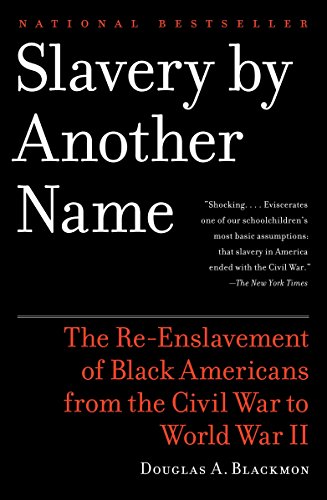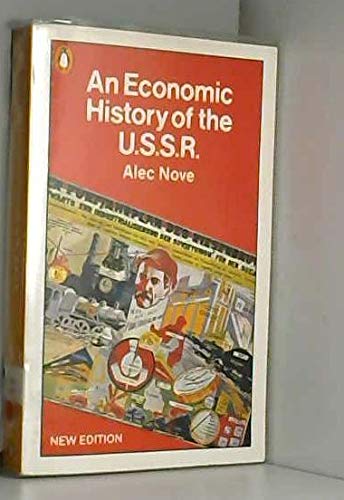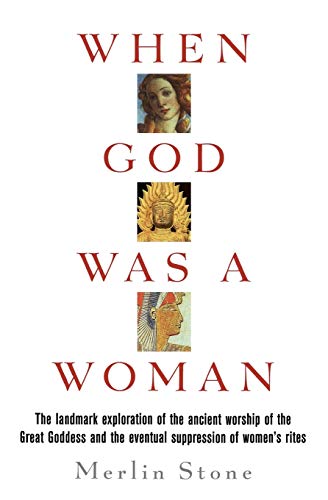(Part 2) Top products from r/chomsky
We found 21 product mentions on r/chomsky. We ranked the 97 resulting products by number of redditors who mentioned them. Here are the products ranked 21-40. You can also go back to the previous section.
21. The Road from Mont Pèlerin: The Making of the Neoliberal Thought Collective, With a New Preface
Sentiment score: 0
Number of reviews: 1
 Show Reddit reviews
Show Reddit reviews22. Permanent War Economy: American Capitalism in Decline (A Touchstone book)
Sentiment score: -1
Number of reviews: 1
Used Book in Good Condition
 Show Reddit reviews
Show Reddit reviews23. Selling Free Enterprise: The Business Assault on Labor and Liberalism, 1945-60 (History of Communication)
Sentiment score: -1
Number of reviews: 1
University of Illinois Press
 Show Reddit reviews
Show Reddit reviews24. Understanding Power: The Indispensable Chomsky
Sentiment score: -1
Number of reviews: 1
Orders are despatched from our UK warehouse next working day.
 Show Reddit reviews
Show Reddit reviews27. The Reactionary Mind: Conservatism from Edmund Burke to Donald Trump
Sentiment score: 1
Number of reviews: 1
 Show Reddit reviews
Show Reddit reviews28. Asia's Next Giant: South Korea and Late Industrialization (Oxford Paperbacks)
Sentiment score: 1
Number of reviews: 1
 Show Reddit reviews
Show Reddit reviews29. American Holocaust: The Conquest of the New World
Sentiment score: 0
Number of reviews: 1
Oxford University Press
 Show Reddit reviews
Show Reddit reviews30. Is War Necessary for Economic Growth?: Military Procurement and Technology Development
Sentiment score: -1
Number of reviews: 1
 Show Reddit reviews
Show Reddit reviews31. I-Language: An Introduction to Linguistics as Cognitive Science (Oxford Core Linguistics)
Sentiment score: 1
Number of reviews: 1
Used Book in Good Condition
 Show Reddit reviews
Show Reddit reviews32. Austerity: The History of a Dangerous Idea
Sentiment score: 2
Number of reviews: 1
 Show Reddit reviews
Show Reddit reviews33. Elements of Moral Cognition: Rawls' Linguistic Analogy and the Cognitive Science of Moral and Legal Judgment
Sentiment score: 1
Number of reviews: 1
 Show Reddit reviews
Show Reddit reviews35. Parachutes, Patriots, and Partisans: The Special Operations Executive in Yugoslavia, 1941-1945
Sentiment score: -1
Number of reviews: 1
 Show Reddit reviews
Show Reddit reviews37. Manufacturing Consent: The Political Economy of the Mass Media
Sentiment score: -1
Number of reviews: 1
Pantheon Books
 Show Reddit reviews
Show Reddit reviews38. Slavery by Another Name: The Re-Enslavement of Black Americans from the Civil War to World War II
Sentiment score: 1
Number of reviews: 1
Anchor Books
 Show Reddit reviews
Show Reddit reviews39. Political Tribes: Group Instinct and the Fate of Nations
Sentiment score: -1
Number of reviews: 1
The bestselling author of Battle Hymn of the Tiger Mother, Yale Law School Professor Amy Chua offers a bold new prescription for reversing our foreign policy failures and overcoming our destructive political tribalism at home
 Show Reddit reviews
Show Reddit reviews



And if you just wanna get plain weird this book by Merlin Stone can make you wonder about everything.
Like there was a war and the bad guys won. After they won they made great efforts to erase a previously existing religion and to date (10,000 years) have been very successful at suppressing the past from pretty much everyone.
Like when you hear Syria you should think Inanna, not ISIL. No one talks about the archaeological treasures that get reduced to rubble every time we invade a country with artifacts. The artifacts never make it and all i see in common is that traces of the old religion are being erased, very consistently, and of course no one in media talks about it.
But that's just me.
Sure:
[1] https://www.goodreads.com/book/show/771283.MITI_and_the_Japanese_Miracle [ Chalmers Johnson on Japanese Economic Development]
[2] http://www.hup.harvard.edu/catalog.php?isbn=9780674226005 [Alex Gerschenkron on Economic Development with an emphasis on Eastern Europe]
[3] http://www.oxfordscholarship.com/view/10.1093/0195076036.001.0001/acprof-9780195076035 [Alice Amsden on South Korean Industrial Development]
[4] https://www.goodreads.com/book/show/2867586-economics-and-world-history [Paul Bairoch on economic development and industrialization in general]
[5] https://www.goodreads.com/book/show/8913542-23-things-they-don-t-tell-you-about-capitalism?from_search=true&search_version=service [Ha Joon Chang]
[6] https://www.goodreads.com/book/show/187808.Kicking_Away_the_Ladder?from_search=true&search_version=service [Ha Joon Chang]
[7] https://www.goodreads.com/book/show/18008001-an-uncertain-glory?from_search=true&search_version=service [Amartya Sen on techniques of what is now known as human development with a focus on India]
[8] http://prebisch.cepal.org/en/works/economic-development-latin-america-and-its-principal-problems [Economic Development in Latin America]
[9] https://www.goodreads.com/book/show/53981.The_Great_Transformation?from_search=true&search_version=service [Another very good book on a similar vein]
[10] For the late industrialization in China kindly check this: https://www.youtube.com/watch?v=dvkhIBQFW1w
[11] For industrialization in India during the Nehru-Gandhi era check, Vivek Chibber: http://www.amazon.com/Locked-Place-State-Building-Industrialization-India/dp/0691126232
[12] For Economic Development/Industrialization across Asia (and the role of finance in stopping it) check this: https://www.youtube.com/watch?v=Ine9PyupCBU
I'm not sure about this. As I understand the mortgage-backed securities and credit swaps is that one of the problems prior to 2009 was there were not sufficient treasury notes in circulation to back up short terms loans so mortgage securities were used as second best collateral given the perception that a pool of mortgages, some with government backing, is only marginally less secure than a T note (Blyth). Government debt is in demand, by implication. If there is a demand for securities, a long term "punishment" of a disobedient socialist or even Keynesian government is unlikely. If stocks decide that President Bernie is a problem, for example, bonds, including government bonds, are going to be more attractive. Maybe the billionaires will all buy gold, Midwestern farmland, and cryptocurrency but it's hard to put 100 billion away like that in a hurry. Some government debt is a good place to hide. Plus, a truly outside the box government could pay down a small percentage of the overall debt by printing a small amount of money without causing massive inflation, as there is no evidence that inflation below 10% has any harmful effect on living standards. So, if the Bernie Bros were willing to let inflation tick up a bit to 6% or so, and if the stock market is iffy on socialists, the federal government should be able to borrow as much as they want -- although Bernie would hopefully not have to as AOC put through a maximum wealth law and the money comes in the old fashioned way...
​
https://www.amazon.com/Austerity-History-Dangerous-Mark-Blyth/dp/019982830X
> Is there anything "disgusting" or "racist" about the video?
I watched a few minutes, but the only thing I found disgusting was the lack of engagement with any serious issues of race inequality in the US.
> I think that intellectual challenge is a good thing.
Maybe read some about issues of race, then? Here is another one.
> Unfortunately, many leftists seem to find intellectual challenge disgusting/bad/racist.
This is way too vague to be meaningful.
edit: THIS is what I meant to link but the other links are still helpful: “Dan interviews Alex Gourevitch about how 19th century US labor radicals remade the idea of freedom into a principle of working-class social transformation.”
https://www.thedigradio.com/podcast/worker-freedom-with-alex-gourevitch/
From Slavery to the Cooperative Commonwealth: Labor and Republican Liberty in the Nineteenth Century, by Alex Gourevitch
https://www.amazon.com/Slavery-Cooperative-Commonwealth-Republican-Nineteenth/dp/1107663652
———————————
The Reactionary Mind: Conservatism from Edmund Burke to Donald Trump, by Corey Robin.
https://www.amazon.com/gp/aw/d/0190692006/ref=dbs_a_w_dp_0190692006
I think it’s referenced in Private Government, by Elizabeth Anderson.
https://www.amazon.com/Private-Government-Employers-Lives-about/dp/0691192243/ref=mp_s_a_1_3?keywords=private+government&qid=1572968997&sprefix=private+govern&sr=8-3
I highly recommend this introductory book for Chomskyian linguistics. It's bibliography is great if you want to dig deeper.
The book referenced at 4:20 is Elements of Moral Cognition: Rawls' Linguistic Analogy and the Cognitive Science of Moral and Legal Judgment by John Mikhail. Seems very interesting.
Alec Nove: An Economic History of the USSR is not bad.
American Genocide is a must read.
https://www.amazon.com/American-Holocaust-Conquest-New-World/dp/0195085574
Here's a biography of Chomsky
I just recently read a very good book about the topic:
"The Road from Mont Pèlerin: The Making of the Neoliberal Thought Collective, With a New Preface", edited by Philip Mirowski and Dieter Plehwe. https://www.amazon.com/dp/0674088344/ref=nav_timeline_asin?_encoding=UTF8&psc=1
The volume contains about a dozen articles written by different scholars and covers 3 major themes:
Part 1.- The origins of the national traditions of neoliberalism: France, Germany, Britain and the US.
Part 2.- How the neoliberal stances on several topics where formed: Trade Unions, monopoly, developmental economics and their relationship with Business Conservatives.
Part 3.- Examples of projects made or influenced by neoliberal ideas: the case of Chile under Pinochet, the international order (UN) and a critical analysis of the urban property rights project in Peru.
The volume is mostly aimed at scholars interested in the topic, so it is not an easy read, but I found it very informative and interesting. Some of the articles are more critical but overall I found it well balanced. Of course it is filled with references but unfortunately a lot of them are in German (it seems that a monograph by Bernhard Walpen is very thorough but it hasn't been translated from german :'( ).
Thanks. I appreciate the response.
If you listen to the 1996 lecture (on Spotify) mentioned in the OP you will hear various quotes that you can find with CTRL+F in this document.
The major book is Elizabeth Fones-Wolf (see here), and I think that it was quite coordinated.
I think that they all organized together through NAM (other channels too? like the "Advertising Council?") in order to fight the threat of "Socialism."
From the above-linked document:
>J. Warren Kinsmann, chairman of the N.A.M.'s [National Association of Manufacturers] Public Relations Advisory Committee and vice president of Du Pont, reminded businessmen that "in the everlasting battle for the minds of men" the tools of public relations were the only weapons "powerful enough to arouse public opinion sufficiently to check the steady, insidious and current drift toward Socialism...." S.C. Allyn of National Cash Register...[summarized] corporate objectives. The goal was to "indoctrinate citizens with the capitalist story."
Absolutely without question, Understanding Power. Super-accessible, covers the widest range of topics, all transcribed from Q&As he gave in person, all from memory. The footnotes alone are 449 pages, I believe they're on understandingpower.com. I've bought & given away multiple copies https://www.amazon.com/Understanding-Power-Indispensable-Chomsky-Noam/dp/0099466066
The big ones:
The first 3 are kind of huge original projects. A lot of his work is filler, repeat content, etc. so it's a good question to ask
It will actually change your life. Just remember to keep reading after Chomsky, I think he's wrong about more than a few things.
Political works by Chomsky:
The Responsibility of Intellectuals (1967),
At War With Asia: Essays on Indochina (1969),
Government in the Future (1970),
The Fateful Triangle (1983, 2015),
The Chomsky Reader (1987, 2010),
Manufacturing Consent (1988, 2002),
Year 501: The Conquest Continues (1992, 2015),
Understanding Power: The Indispensible Chomsky (2002),
Hegemony or Survival (2003),
Failed States (2006).
Works on Chomsky:
Noam Chomsky: A personal bibliography, 1951-1986 (1986),
Noam Chomsky: A Life of Dissent (1998),
Chomsky: Ideas and Ideals ( 1999, 2002, 2016),
The Cambridge Companion to Chomsky (2005, 2017),
The Social and Political Thought of Noam Chomsky (2000, 2002, 2004),
The Chomsky Effect: A Radical Works Beyond the Ivory Tower (2007), Noam Chomsky (2015)
Also this, this, this and this.
>I want to know your ideal politics for the world.
A world of ethno countries (Not in the racist way, but in the anthropological one which is based around culture and language, unlike the racist that's around skin color that's meaningless) banded together in something akin to the UN , for example, Mindanao could very well be its own little island country, SriLanka has suffered horrendously at the hands of ethnic strife, of different ethnic groups fighting each other for the full control of the country, or of ethnic groups wanting to achieve independence, africa itself is choke filled of this.
Remember that the borders of most of the countries of the planet, meaning the entirety of africa, middle east, south east asia, and degrees of latin america came to be with their current borders because the colonial states wanted said countries to be unstable, they pitted different ethnic groups against each other. If half of Italy were mixed with chunks of Germany and piece of France into a single country, do you honestly believe that would be an stable country?... Because that's exactly what British, French, Belgian did to the entire African continent, and they did it, because that way any person that gets in power on those mish mashes of countries would not be able to retain power without the help of colonial masters.
This is the Murdock Map Of African Ethnic Groups, and is the most precise ethnolinguisic map of the african groups, and it showcases simply how different people on individual countries are, those groups might not even speak the same language, let alone share a common history or past beyond their hatred of their colonial masters, and the fact that Africa or the Middle east as continents have devolved into raw violence is exactly because they were designed to be violent by the colonial masters.
In the map you can clearly see how entire groups, entire people's whom if they so desired could have made their own little countries akin to Switzerland, Rwanda (Sort of) or Japan. And I stress that I don't say this from a racist perspective, but from an anti-imperialist one and a one that understands that people whom don't share a common past or not even a language can't on a macro scale realistically be expected to always get along.
Here are a couple things that expand on it:
The Power of Tribalism, with Amy Chua & Walter Russell Mead <- Podcast
Invented Communities in Africa and America
A Continent Carved Up Ignoring Who Lives Where
Tribal World Foreign Affairs
https://www.amazon.com/Political-Tribes-Group-Instinct-Nations/dp/0399562850
But yeah, beyond that, you need to keep in mind that that's just a very rough sketch, what you want is people voting and expressing themselves if they want to move away and become their own country, or if they want to stay and just have bigger control of their own affairs like a semi-independent republic within the bigger country, all of that needs to be done by the people themselves in a very local fashion and in an honest way, so you avoid problems with racists taking over the discussion
Thing is, that this won't "fix" things, it will just generally assure a higher degree of stability for the regions and countries themselves, remember, Europe is the way it is because of the huge amount of wars they have had in their past, which allowed the current borders to settle and people to identify with the bigger group, meaning that, it is only thanks to said wars and violence, that now things have settled to a degree where entire countries have become the iconographic of the ethnic group. In the past it used to be village, the town, then the city, now is the state, region and later the country, Ethnicity morphs and changes as groups identity comes and goes, ethnic groups are like the sea, the waves come and go over time, I'm sure you don't identify as Kampagan or Bikol anymore but as Philippino, your ethnic group became your nationality, and that's a process that takes national stability and a long, long time, only now days we are seeing african countries and ethnic groups there shift to identify as "Angolan" or "Botswanian" instead of their local origin group. This also has got a lot to do with social atomization and other things that sprout from the economic systems countries use, but that's another discussion altogether.
Anyhow, to short it up, the ethnic groups thing wont correct bigger groups bullying smaller ones, such as could be Han bullying Korean or Uighur, but them working a framework such as the UN helps alleviate tensions which otherwise would flare in usage of military force. It is very easy for people whom take the UN for granted to say it doesn't work, or doesn't do anything, but the UN as a system wasn't designed to stop all kinds of violence such as the Rohinga ethnic cleansing, but to stop wars, and given that we currently are living in the most peaceful period of human history, id say that it has done its original purpose well enough
Anyhow, if you liked the video, that was a segment of a movie/documentary about the book written by the Greek Historian Thucydides, here's the full doc
If you are interested in current International Relations, id recommend you to subscribe (paid) to the Foreign Exchanges newsletter, and if you don't want and just want an overview, check the podcast of Carnegie Council For International Affairs
or NakedCapitalism Blog, for very current International Relations, read MoonOfAlabama tho they can get too conspiratorial for my taste, but that's just something of the trade. And all that's holy don't go into r/geopolitics it used to be good, 4 years ago, but now it is just brigaded to hell and of lowers common denominator information, visit r/irstudies r/PoliticalScience/, o yeah, and be sure to read up the Schiller institute pieces, they are lengthy, but of the utmost highest quality
So, to sum up everything, ideally what we want is World Federalism
And when it comes to China, please be careful of what you read, because there is real manufacture of consent out there: Link
Now I'm certain the Chinese are seriously mishandling Uighurs, but we can be certain that we won't get accurate information from Western sources that have serious money to earn from obfuscating the matter
Anyhow, this will be my last post for the day, as I need to get back to work, take care duder
Edit: Oh yeah, I forgot to add this one: An Insider’s View of the China-Africa “Debt Trap” Debate
I've had these books on my wish list for a while, but have yet to read them: